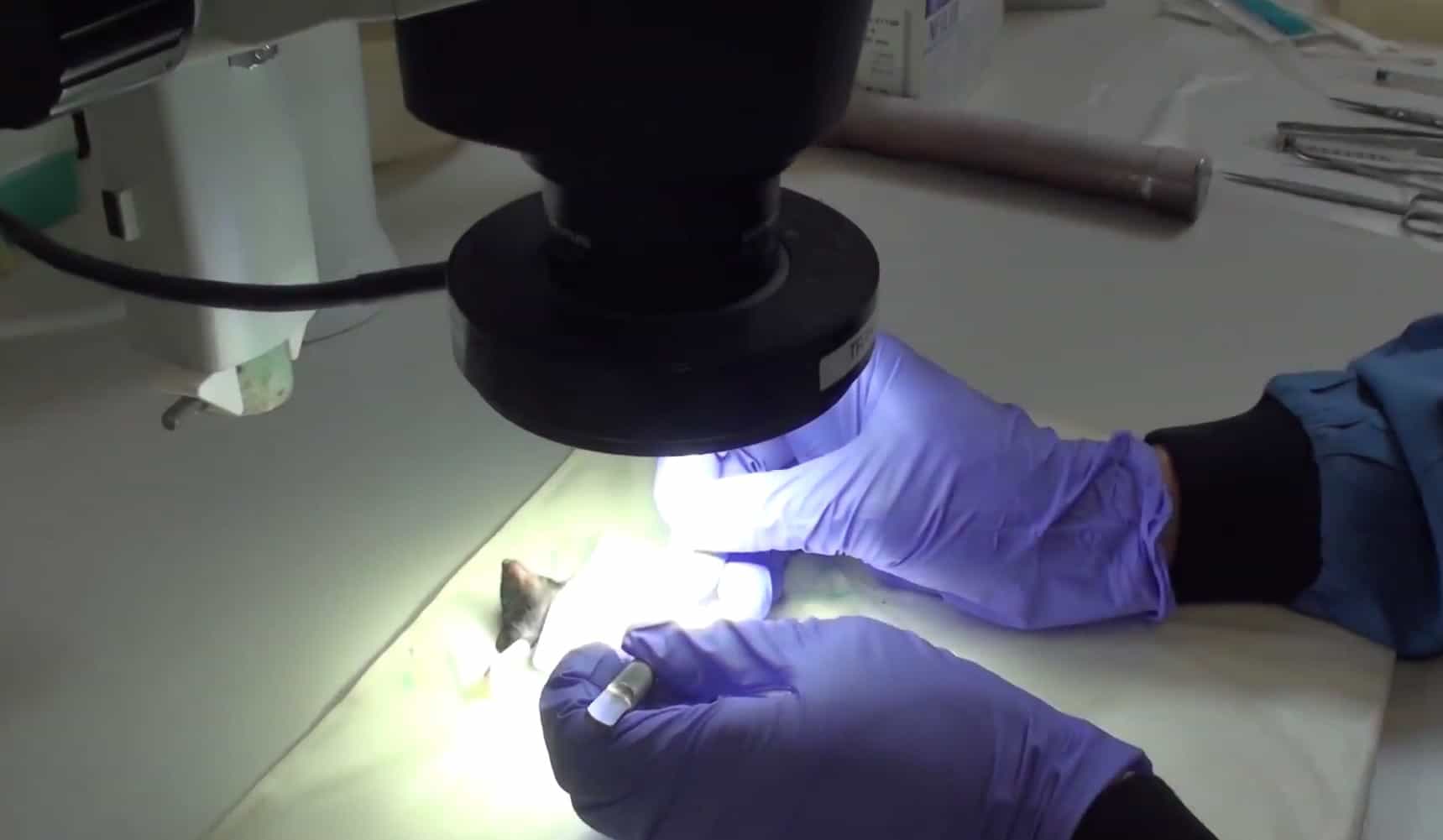Moderate procedures
Moderate procedures may cause short-term moderate pain, suffering or distress or long-lasting mild pain, suffering or distress. They can result in moderate impairment in well-being or condition. Examples include
- surgery under general anaesthetic
- causing cancer in an animal
- a modified diet
- exposing the animal to something that they would normally run away from, without enabling them to run away
- forced swim tests (note: swim tests can be classified as severe in some circumstances such as tests of long duration)
Moderate procedures account for approx. 15% of all procedures. See our statistics page for more detailed information.
Organ transplants in mice

In this video consultant surgeon, Geoff Koffman explains how research with mice has helped to reduce the problem of organ rejection after a transplant in humans. Researchers transplant the heart from one mouse into a second mouse under general anaesthetic. This enables researchers to study and test potential treatments for the rejection of organ transplants and has led to a significant decrease in the death of humans after transplant operations.
Please be aware that this film contains images of both human and animal surgery.
Implanting a wireless transmitter into a rat
"Very small devices are often used to transmit and monitor heart rate from living animals, for example, so that the effects of a drug on the heart can be studied. These devices are surgically implanted into animals and work in a similar way to pacemakers in humans. The rat is given a general anaesthetic, the skin is opened under clean conditions, and the transmitter is surgically inserted and stitched into place inside the body. Painkilling drugs are given before surgery and after the animal has woken from the anaesthetic. The rat will then be given the test drug one or more times, either by injection or by a tube inserted into the mouth and pushed into the stomach, and a receiver will be used to detect and record heart rate."
Example taken from Openness on Animal Research Dialogue.



